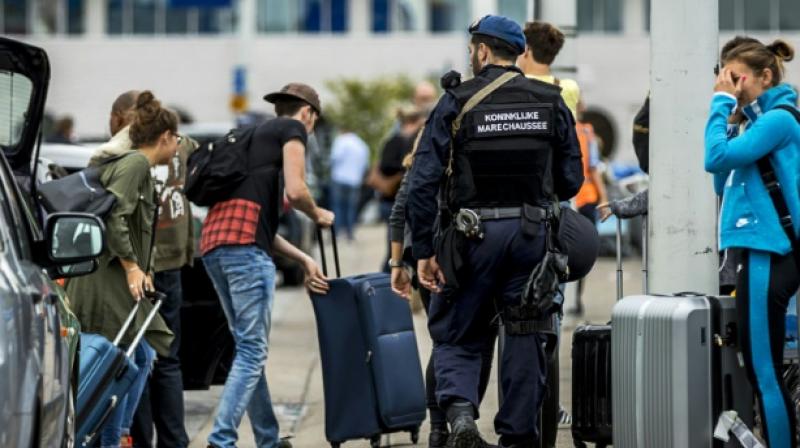Trump ban strands six Iranians in Amsterdam airport

The Hague: Six Iranians travelling to the US have spent three nights stuck in transit at Amsterdam airport, angry and humiliated by the sudden decision to deny them entry.
"This is a very confusing and contradictory state to be in," Pedram, a 33-year-old doctor, told AFP on Tuesday, speaking by phone from the transit lounge at Schiphol airport.
He and the five others, a PhD student, and two married couples heading to visit their children in the United States have been left stunned by President Donald Trump's executive order blocking entry to citizens from seven Muslim-majority countries.
The group was transiting through Schiphol, one of Europe's busiest travel hubs on a KLM flight from Tehran to catch connecting flights to different cities in the United States.
"When we set off from Tehran nothing was said about Trump's new rules. They gave me a boarding pass and everything was OK," said another of the group, a 29-year PhD student, who asked to remain anonymous.
But when he landed at Schiphol airport on Saturday he had to go through another security check and was pulled to one side.
An officer from the US immigration services "told me that I no longer had the allowance to go into the country."
He was travelling to Minnesota to begin a six-month collaboration at the university researching water treatment systems, on a valid non-immigrant visa which took him several months to secure. His return was booked for October.
The small group were strangers before, but with no visas to enter the EU they have spent three nights together stuck in limbo, sleeping on sofas and chairs in the airport's transit lounge.
KLM staff have tried to help them by providing food, and finding a place to shower. But despite visits from US embassy staff, and even from Dutch lawyers trying to resolve their case, they remain uncertain what to do next.
Although booked on a KLM flight back to Tehran later Tuesday, not all of them have decided yet whether to return home or to stay and see if they are allowed to continue on onwards flights.
Pedram, who asked to be identified only by his first name, was heading via Detroit to the University of Pittsburgh, to take up a 12-month post-doctoral research scholarship into pancreatitis.
Like the others, he underwent months of stringent security checks to obtain his visa. With no US embassy in Tehran, those seeking permission to enter the United States have to travel outside Iran, usually to the Gulf states, to get visas.
"I can't imagine anyone who is further from a security threat than I am. I consider myself a physician, doing a scientific job and research," Pedram said.
"I know there is a lot of politics behind the scenes, but personally this is senseless," Pedram said.

